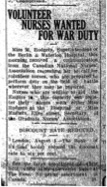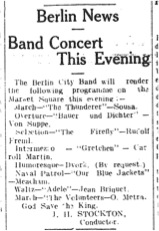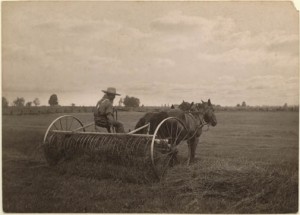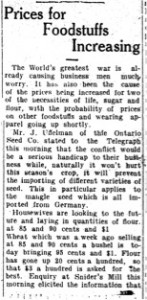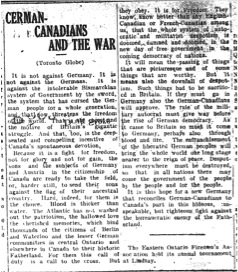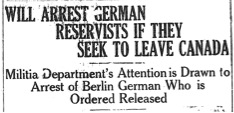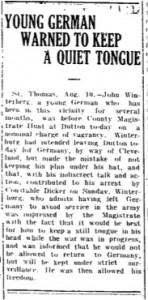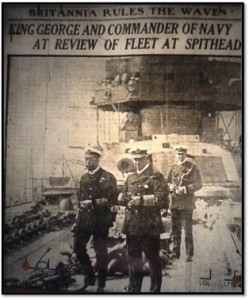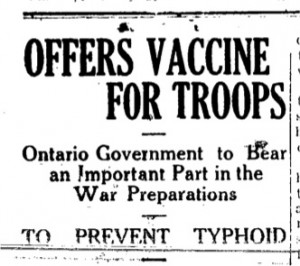On 6 August, the Canadian National Nurses Association made the call for volunteer nurses. Women who were willing to perform their duty to the empire on the field of battle and wherever else they were needed were asked to answer this call. Only those who were prepared for such a duty were asked to register their names with Miss Rodgers, the Superintendent of the Berlin & Waterloo Hospital, or Miss Masters, the Secretary of the Graduate Nurses’ Association in the Waterloo Region. By 8 August, five young women from the region had offered their services and reported to Miss Masters. The women would join the volunteer Red Cross Society in overseas service with the first contingent.
(“Volunteer Nurses Wanted for War Duty,” Berlin Daily Telegraph, 6 August 1914; “Five have Volunteered,” Berlin Daily Telegraph, 8 August 1914; “Five have Volunteered,” Waterloo Chronicle Telegraph, 13 August 1914)
